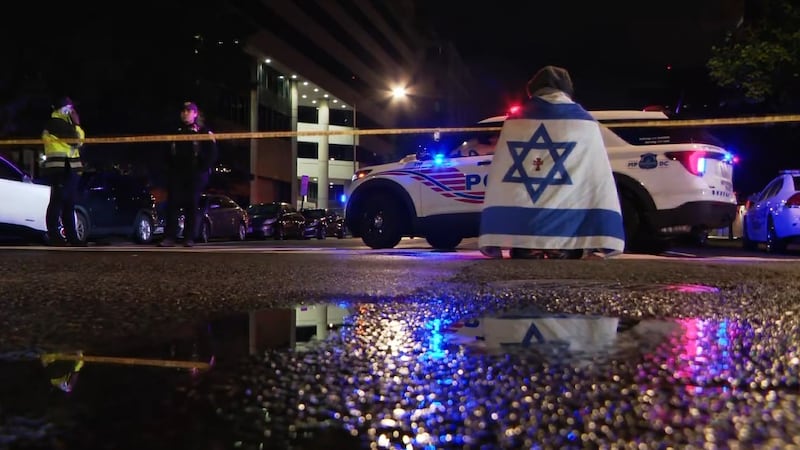Kansas City approves $46 million to keep public transportation running
KANSAS CITY, Mo. (KCTV) - Kansas City City Council approved a $46 million bailout to keep the Kansas City Area Transportation Authority (KCATA) operating for at least the next six months, averting potential route cuts that threatened to leave riders stranded.
It was something that left bus riders like Jeremiah Davis nervous the last few weeks.
“Get a few butterflies every time I go out to the bus stop, not sure if it was going to be there,” said Davis.
It comes after the council approved its $25 billion budget for the next fiscal year, allocating $71 million with an additional $6.8 million from a budget amendment to the KCATA.
The city council voted on the additional funding late Thursday afternoon ensuring that all existing bus routes will continue. KCATA Chairman Reginald Townsend confirmed the agency will be cutting routes down to 18 hours a day to maintain all 29 routes.
Perhaps the most significant change for riders will be the return of bus fares. If Kansas City’s city council gets its wish, the fare-free transit experiment, which began in 2020, will come to an end with the introduction of a $2 base fare. KCATA said it has not come up with an exact dollar amount at this time.
Seniors and people with disabilities will still be able to board for free, and others would be able to apply for reduced fares. The transition is expected to take several months to implement.
For many, the return of fares is unwelcome news. Kevion Bowman, a frequent bus rider, expressed frustration at the change.
“It affects my pockets, actually, because nobody likes spending money on fares. It’s kind of a hassle,” Bowman said.
Ronisha Webb, another rider, said she relies on the bus to transport her special needs child to medical appointments.
“I just went to one of my appointments and spent $30 to go 10 blocks using a rideshare service,” Webb said. “That’s why I take the bus—it’s free, and I don’t have to worry about that cost.”
The city council’s decision comes amid growing scrutiny of KCATA’s financial management.
Added to the additional funding was a request for the City Auditor or a designated third-party auditor to conduct a full financial and operational review of KCATA with the findings reported back to the council.
“We are trying to say how could be have known things earlier and how could we have actually gone through things earlier to ensure that yeah, we are actually going to see where problems are arising, see where costs can be saved, and frankly see where we can avoid the very type of situation that seems to be happening year after year after year,” said Mayor Quinton Lucas.
Townsend says the agency is already federally required to undergo multiple independent audits.
“Agencywide, that it not a thing we would do for the City of Kansas City,” said Townsend. “It would be scoped to their service. The contracts we have with different communities have provisions in them to be able to review costs for services for the contract they are paying for.”
Some council argue that while the city has the funds to keep transit running beyond the next six months, they want to ensure proper oversight before committing additional money. KCATA officials will present financial records to the city council every two months as part of the new funding agreement.
“While I appreciate the requirement that was levied in the ordinance, we are not a city department,” said Townsend. “We are already inspected and audited as it is by the FDA and a third-party audit department. They already have and will continue to have the same level of access to the city’s contract and service that we provide and how those funds are being allocated. I don’t see any additional changes to how we do that.”
When asked if KCATA has been forthcoming with where money is going in the organization, Lucas said they always want more information.
“We want to understand how we’ve seen this kind of sharp increase over time,” said Lucas. “I understand personnel is always a part of it for every institution, but we are a public institution too. Lots of public institutions face some of the same issues but are finding ways to address those funding concerns year over year. It can’t just be Kansas City taxpayers alone. We had an extensive conversation a few weeks ago during our budget process in connection with that very step. Let’s try to do what we can to make sure that there is a real path for how their addressing this shortfall, because the other problem is this: we can’t just fill it every year. So next year, do we run into the exact same challenge? That’s where we need them to do a lot more work and to show us what the plan is.”
Nicholas Miller, president of the Amalgamated Transit Union Local 1287 -- which represents many city bus drivers, questioned the city’s approach.
“The thing I don’t understand is why they’re putting KCATA under such scrutiny. The police department doesn’t have to go through this. The fire department doesn’t have to go through it,” Miller said. “KCATA had three audits done last year. FTA was one of the audits that they had been done – they found nothing of where they were misappropriating funds or anything. And the City hasn’t said exactly what it is that they are actually wanting from the agency.
“They are talking about the cost of everything going up, but they’re not looking at the fact of inflation going up as well.”
Another key element of the bailout is the preservation of jobs for IRIS drivers—contracted rideshare drivers through Z-Trip who provide reduced-fare transportation. The 100 IRIS drivers will remain employed for at least six more months under the new plan.
“We are very joyful that the city council as well as the mayor decided to fund this program for another 6 months,” said Bakar Mohamed, an IRIS Driver. “The city made a good choice and we’re happy about it.”
Another ask by the Kansas City Council is to see KCATA increase regional partnerships with other municipalities. Townsend says they’ve been having casual conversations with multiple elected officials on the structure of the agency, with hopes for more intentional conversations going forward to better service the community.
“We need the region to come together and come up with an opportunity and a way to develop a sustainable model that provides opportunities for everyone, regardless of their location,” said Townsend.
As for what’s next, Lucas says KCATA and Kansas City transportation leaders will be meeting to discuss the ordinance and the city’s contract.
“I think we’re an important stakeholder,” said Lucas. “Hopefully they are aligned with where we are and then we can get to work on how we can fill these budget gaps.”
Copyright 2025 KCTV. All rights reserved.













